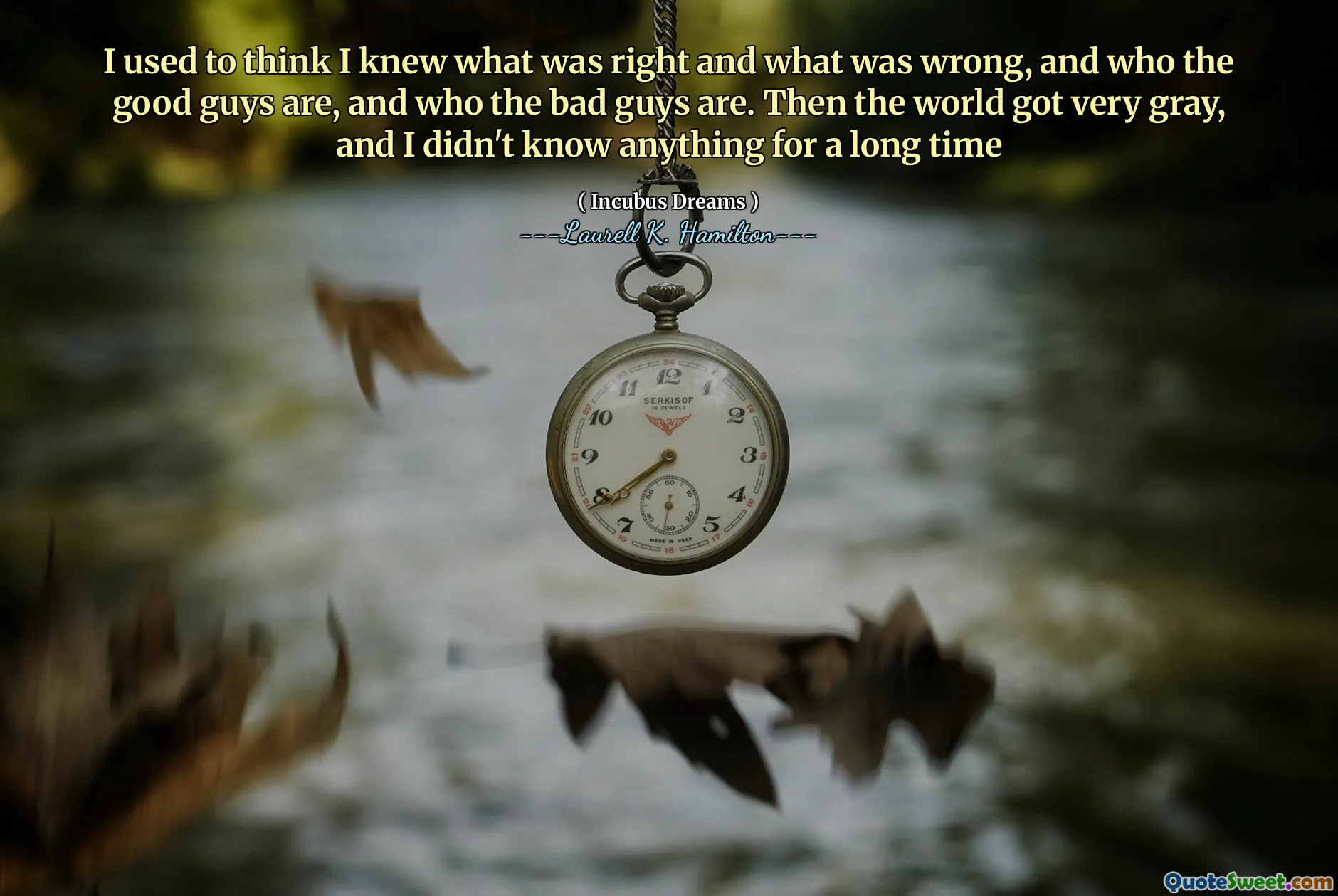
I used to think I knew what was right and what was wrong, and who the good guys are, and who the bad guys are. Then the world got very gray, and I didn't know anything for a long time
This quote beautifully captures the evolving nature of moral clarity and the often complex reality that individuals face as they navigate life. Initially, there is an innocence in believing that the world can be easily divided into clear-cut categories of right and wrong, good and bad. Such a perspective offers comfort and simplicity, giving us a sense of certainty and control over our environment. However, as we grow and experience more nuanced situations, this dichotomy often dissolves into shades of gray. Recognizing that people and scenarios are rarely black or white can be unsettling, as it challenges our previously held beliefs and exposes us to ambiguity and moral complexity. This realization can lead to a period of doubt and confusion, as it requires reconciling the difficulty of making moral judgments when circumstances are layered and multifaceted. It fosters a deeper understanding of human nature, emphasizing empathy, context, and the importance of continual learning. This phase of uncertainty, though uncomfortable, can be profoundly liberating—paving the way for more authentic relationships and a more nuanced worldview. Embracing ambiguity doesn't mean abandoning morals but rather acknowledging that circumstances often demand a more thoughtful, empathetic approach. It emphasizes that growth comes not from rigid identification with simplistic notions of good and evil but from appreciating the complexities that make life meaningful and unpredictable.






